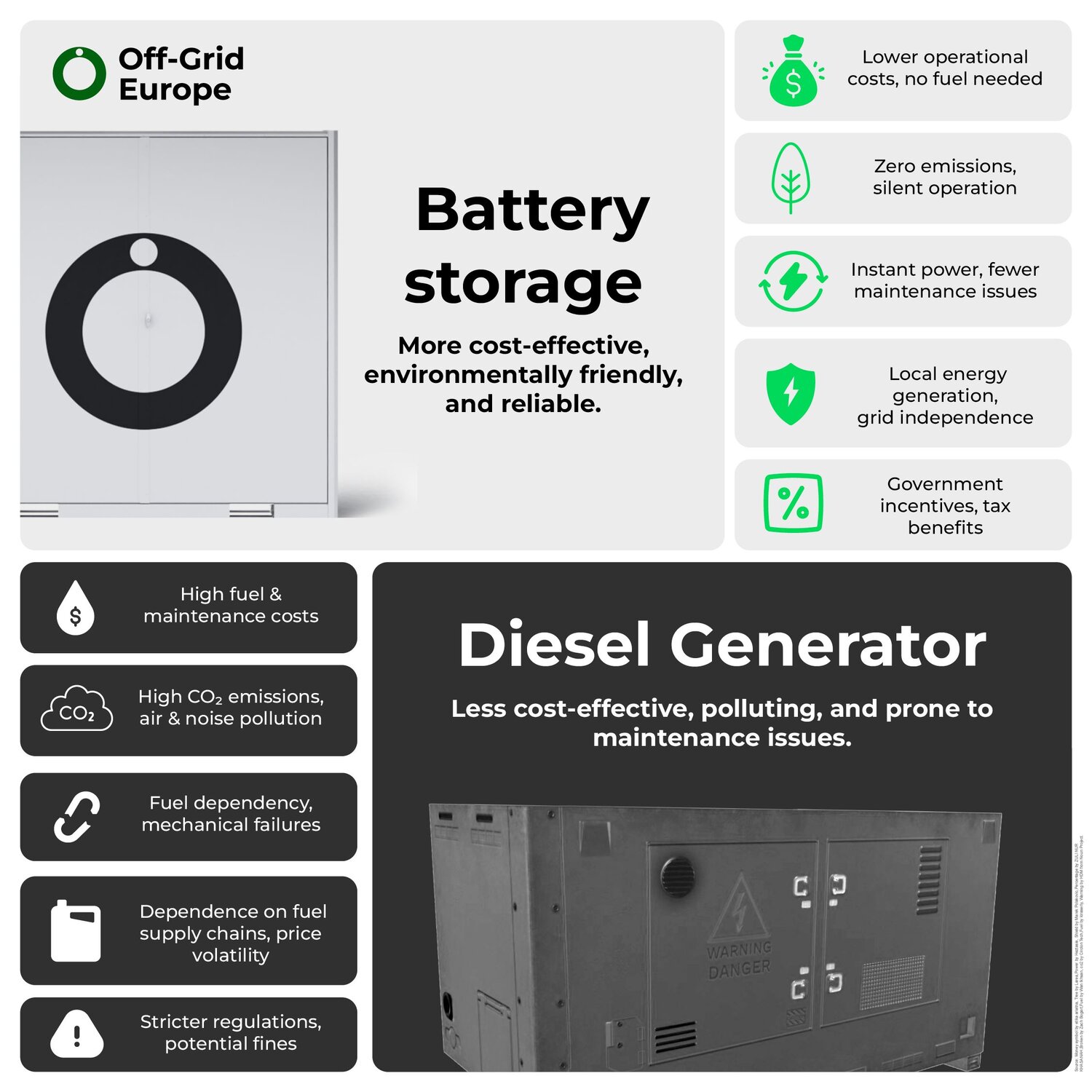Blog
#accesstoenergy
Replacing Diesel with battery storage for reliable energy supply
While diesel generators have historically been the go-to backup solution, battery storage is now a more cost-effective, environmentally friendly, and reliable alternative for renewable energy systems. Replacing diesel-powered generators with battery storage makes sense for several reasons:

Infographic: Replacing diesel-powered generators with battery storage makes sense for several reasons.
1. Cost Savings Over Time
Batteries eliminate fuel expenses, reduce maintenance costs, and operate more efficiently than diesel generators. They provide long-term financial benefits by avoiding fuel price fluctuations and frequent servicing.
2. Environmental Benefits
Unlike diesel generators, batteries produce no emissions, operate silently, and eliminate risks of fuel spills. This helps reduce air pollution and environmental damage.
3. Improved Energy Reliability & Efficiency
Batteries provide instant backup power without startup delays and seamlessly integrate with renewable energy sources. They are scalable, modular, and more efficient than diesel generators.
4. Energy Independence & Security
By reducing reliance on fuel, batteries enhance energy security and protect against supply disruptions. They also help stabilize the grid by balancing power supply and demand.
5. Regulatory & Incentive Benefits
Governments offer financial incentives for battery adoption, making them a more attractive alternative. Stricter environmental regulations further discourage diesel generator use.
Market potential
The market potential for Battery Energy Storage Systems (BESS) in Africa is significant, driven by falling costs and increasing renewable energy adoption. The cost of solar panels has dropped by 66% in two years, and battery costs have fallen by 58% in the last year, making storage solutions more viable (Reuters, 2025). Stationary energy storage capacity in sub-Saharan Africa is projected to surpass 2 GW by 2025, supporting grid stability and integrating intermittent renewables (SAESA, 2023). Countries like Cameroon have saved up to $40 million by implementing BESS, reducing fossil fuel dependence and improving energy security (Reuters, 2025). Advances in lithium-ion technology and supportive policies are further accelerating adoption, though regulatory barriers remain (MDPI, 2022). With ongoing policy improvements and financial mechanisms, Africa's BESS market is poised for rapid expansion in the coming years (Africa-EU Energy Partnership, 2023).
Source: "Money" symbol by etika ariatna, "Tree" by Larea,"Power" by Heztasia, "Shield" by Marek Polakovic,"Percentage" by ZULI NUR KHASANAH,"Broken" by Zach Bogart,"Fuel" by Wan Ikhsan, "co2" by Circlon Tech,"Fuel" by kiraserly, "Warning" by HDM from Noun Project.